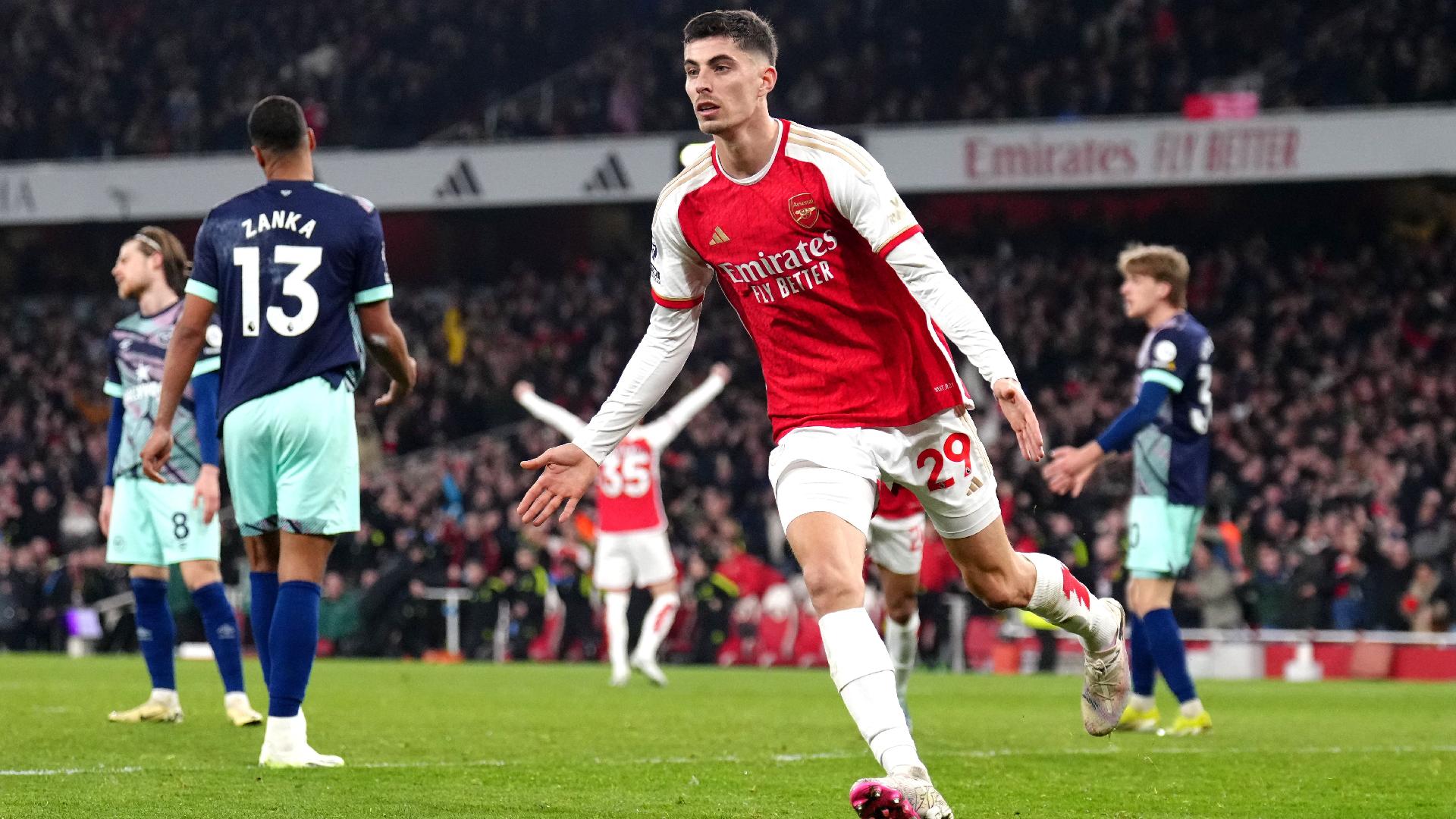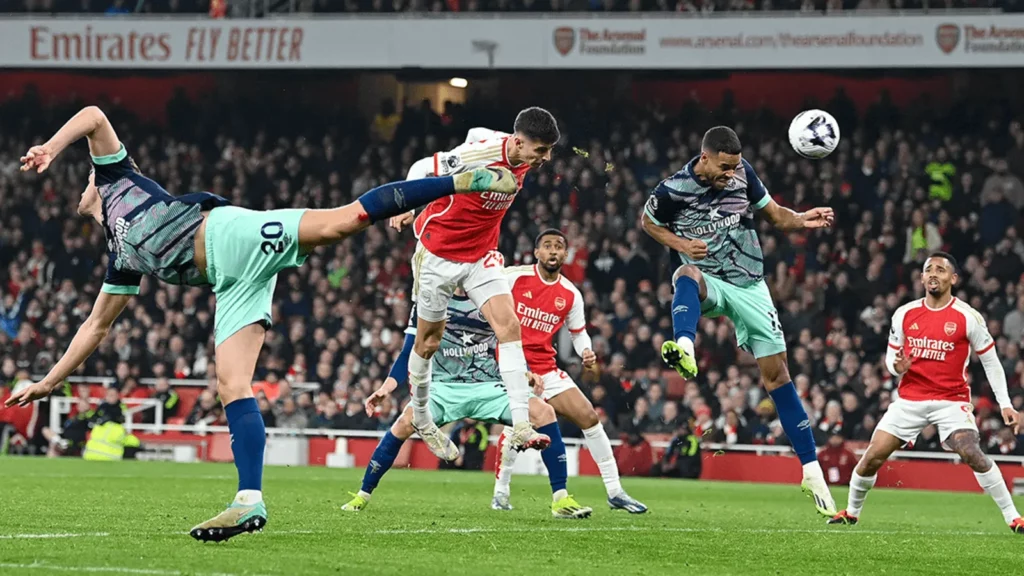The Key Match Incidents (KMI) panel’s recent ruling on Kai Havertz’s conduct during Arsenal’s match against Brentford has stirred up discussions in the football community. The panel, which scrutinizes controversial decisions made by referees, consists of five independent members, including three former players or coaches and representatives from both the Premier League and the Professional Game Match Officials Ltd (PGMOL).
In the spotlight is an incident involving Havertz, who had already been booked for an elbow on Brentford’s Kristoffer Ajer. Later, he was involved in a contentious moment with Nathan Collins, where he went down with minimal contact. The referee at the time, Rob Jones, did not issue a second yellow card, allowing Havertz to continue playing. He eventually scored the decisive goal in Arsenal’s 2-1 victory.

The Times reported that after reviewing the incident, the KMI panel concluded Havertz should have been sent off for what they deemed a ‘clear act of simulation’. This finding, however, does not translate into retrospective action due to the rules governing the panel’s operations. Consequently, Brentford receives no retroactive remedy for the oversight, which could have potentially altered the outcome of the match.
The KMI panel’s role is to provide an objective post-match analysis of refereeing decisions, aiming to enhance the consistency and quality of officiating in the Premier League. While their conclusions can influence future refereeing guidelines and training, they do not change past results or impose sanctions after the fact.
This situation highlights the ongoing debate about the effectiveness of post-match reviews and the need for real-time decision-making support in football, such as the Video Assistant Referee (VAR) system. The panel’s findings underscore the complexities of football governance and the continuous efforts to uphold the integrity of the game.

In full, the panel’s decision read: “Havertz is already falling when the defender makes contact, brushing Havertz’s hip. The panel unanimously agreed the on-field decision was incorrect and Havertz should have been awarded a second caution for a ‘clear act of simulation’. ”
Brentford fans took to social media during the match to express their disbelief after Jones failed to punish Havertz with a second yellow card following his tumble in the penalty area. Bees head coach Thomas Frank was also outspoken on the incident post-match.
“I know I don’t ever do that, but I actually don’t think Havertz should be on the pitch when he scored the goal,” Frank told Sky Sports. “For me, it was a clear dive for the penalty should. If you see that slowly back, it’s clear.”


